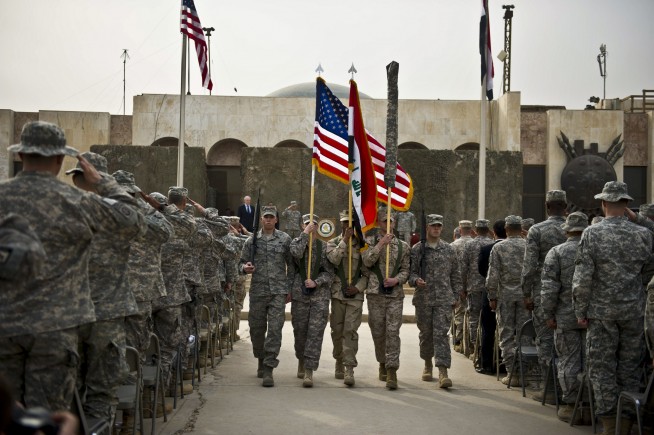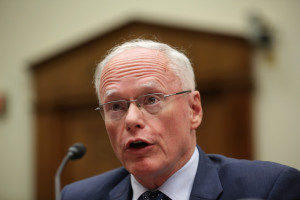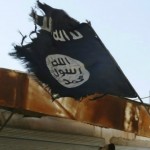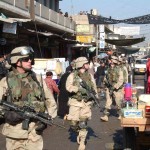by Jim Lobe
Just a quick note to cite and link to an important analysis on the three-year-old debate, first raised by Charles Krauthammer, over “Who Lost Iraq.”
The article, entitled “Behind the U.S. Withdrawal from Iraq,” was published this week on the op-ed page of the Wall Street Journal whose readers are badly in need of this corrective. The author, Amb. James Jeffrey (ret.), served as Washington’s chief envoy to Baghdad during the critical 2010-12 period in which the negotiations over a Status of Forces Agreement (SOFA) that would have permitted US military forces to remain in Iraq beyond 2011 were carried out in earnest.
Jeffrey, who has been quite critical of the Obama administration since his retirement and since taking up his perch as a visiting fellow at the Washington Institute for Near East Policy, lays out very clearly what the positions of the various parties, including the key Iraqi party leaders, were as the negotiations proceeded. He rebuts virtually every hoary charge by neoconservatives and other hawks against the administration.
Here’s one key passage:
Given the success in winning a SOFA in 2008, what led to this failure? First, the need for U.S. troops was not self-evident in 2011. Iraq appeared stable, with oil exports of two million barrels a day at about $90 a barrel, and security much improved. Second, politics had turned against a troop presence; the bitterly anti-U.S. Sadrists were active in Parliament, the Sunni Arabs more ambivalent toward the U.S., and polls indicated that less than 20% of the Iraqi population wanted U.S. troops.
Could the administration have used more leverage, as many have asserted? Again, the main hurdle was immunities. The reality is that foreign troops in any land are generally unpopular and granting them immunity is complicated. In a constitutional democracy it requires parliament to waive its own laws. An agreement signed by Mr. Maliki without parliamentary approval, as he suggested, would not suffice.
(This observation, of course, should be of considerable relevance to those dwindling number of neoconservatives who still insist that promoting democracy and the rule of law should be a top priority in US foreign policy. But, of course, with remarkably few exceptions, most neocons have become almost as enamored of Gen. al-Sisi in Egypt as they have of Bibi Netanyahu.)
Jeffrey then goes on to explicitly rebut one of the most common neoconservative criticisms (see, for example, Max Boot’s “Obama’s Tragic Iraq Withdrawal” in the Wall Street Journal) of Obama’s plan for 5,000 US trainers to remain in Iraq.
Was the 5,000 troop number too small to motivate the Iraqis? No Iraqi made that argument to me; generally, smaller forces are more sellable. Could someone other than Mr. Maliki have been more supportive, and were the Iranians opposed? Of course, but with or without Mr. Maliki and the Iranians we faced deep resistance from parliamentarians and the public.
Finally, the notion that the retention of US troops in Iraq in any number could have prevented what has since taken place there—another neoconservative and mainly Republican idée fixe—is denounced by Jeffrey as “hogwash”:
Could a residual force have prevented ISIS’s victories? With troops we would have had better intelligence on al Qaeda in Iraq and later ISIS, a more attentive Washington, and no doubt a better-trained Iraqi army. But the common argument that U.S. troops could have produced different Iraqi political outcomes is hogwash. The Iraqi sectarian divides, which ISIS exploited, run deep and were not susceptible to permanent remedy by our troops at their height, let alone by 5,000 trainers under Iraqi restraints
This, of course, underscores the conclusion that, despite its tactical successes against the Islamic State (ISIS or IS), the much-touted surge failed in its ultimate strategic goal: to help create an irreversible process of national reconciliation among the contending ethnic and sectarian communities in Iraq.
Jeffrey does not absolve the administration of all responsibility, but, as noted above, his op-ed offers a needed corrective by someone who was centrally involved in the negotiations and who, since his retirement, would not appear to have much, if anything, to gain by defending Obama against the critics’ charges.







I agree the US cannot impose sensible politics on Iraq or any other ME country by keeping US troops in that country.
Let us remember that Sunni and Shia intermarried frequently, under Saddam Hussein
Actually I think the presence of any foreign troops in politically charged, troubled areas such as Iraq can act as a magnet for reactionaries. Foreign occupation gives cause to forces who see their reaction as legitimate resistance. And if there are local authorities who collaborate for the foreign forces, that gives more cause to sectarianism and resentment. In other words, you can’t win either way.
With the election results in giving the Repuglicons the majority in both houses, it’s going to be interesting to watch how they play out the wars the U.S.has created and are still involved in. One question though, how will they blame the “O” if the failures continue after they increase the $Billion[s] drain on the treasury that’s going to happen? After all, it’s going to be on their watch, not his, and it’s only 2 years before another election, when they can be kicked out for any failure[s] that ensue.